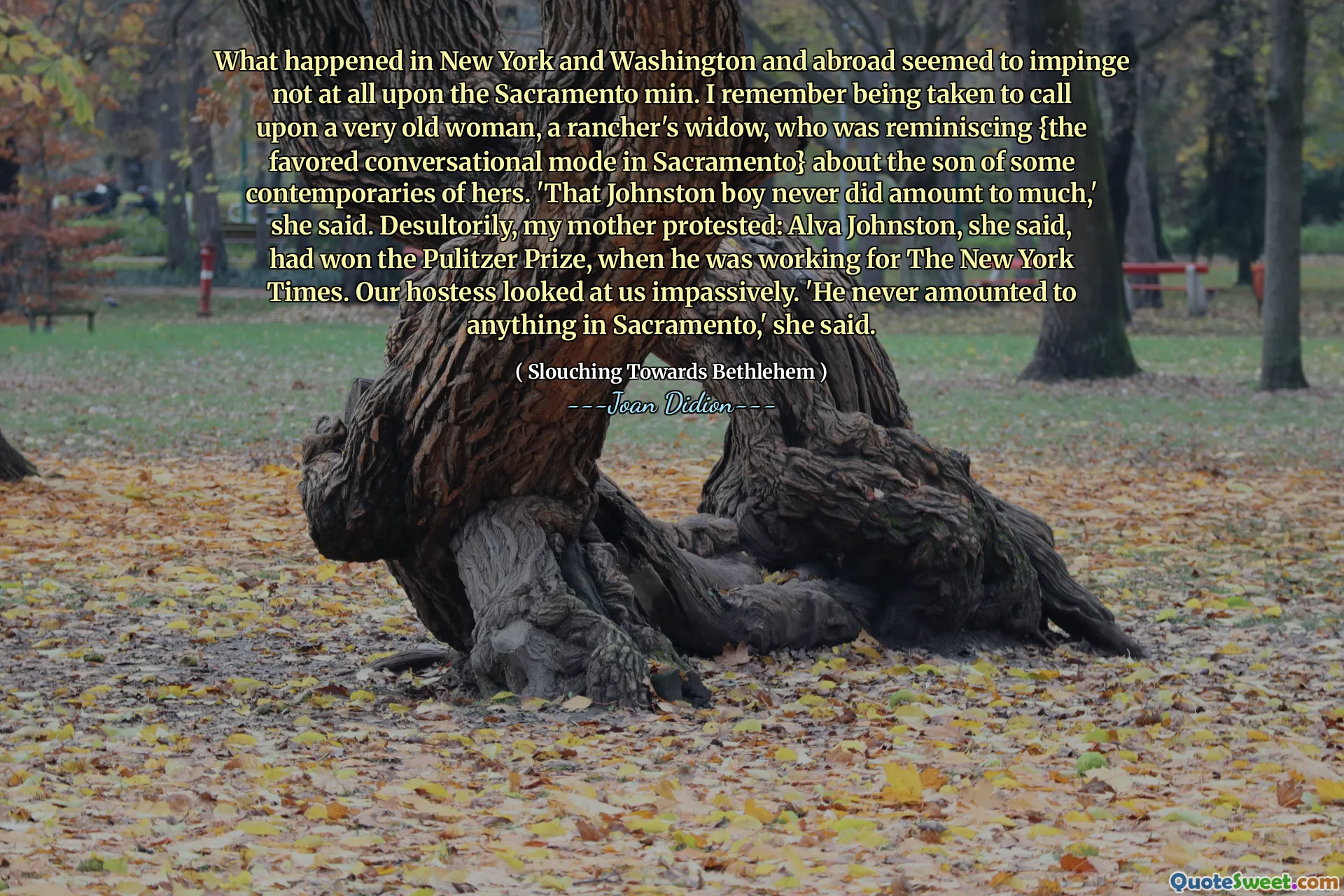
纽约,华盛顿和国外发生的事情似乎并没有影响萨克拉曼多的明亮。我记得被带到一个非常老的女人,一个牧场主的遗ow,他想起了萨克拉曼多的偏爱的对话模式}关于她的一些同时代人的儿子。她说:“约翰斯顿男孩从来没有做很多事情。”我的母亲抗议,我说:阿尔瓦·约翰斯顿(Alva Johnston)在《纽约时报》(New York Times)工作时赢得了普利策奖。我们的女主人不停地看着我们。她说:“他在萨克拉曼多从来没有任何事情。”
(What happened in New York and Washington and abroad seemed to impinge not at all upon the Sacramento min. I remember being taken to call upon a very old woman, a rancher's widow, who was reminiscing {the favored conversational mode in Sacramento} about the son of some contemporaries of hers. 'That Johnston boy never did amount to much,' she said. Desultorily, my mother protested: Alva Johnston, she said, had won the Pulitzer Prize, when he was working for The New York Times. Our hostess looked at us impassively. 'He never amounted to anything in Sacramento,' she said.)
在琼·迪迪翁(Joan Didion)的“向伯利恒(Bethlehem)倾斜”中,她反思了重大国家事件与萨克拉曼多(Sacramento)的当地心态之间的脱节。一个轶事分享了她对一个老年牧场主的遗ow的访问,她回想起了她的过去,揭示了对当地人物的关注,从而减少了其他地方认可的成就。她在《纽约时报》上驳回了阿尔瓦·约翰斯顿(Alva Johnston)在普利策奖得主的职业生涯,这体现了一种本地观点,该观点重视社区而不是全国成功。
迪迪翁的经验说明了萨克拉曼多以外的成就似乎与居民无关。该女子坚持约翰斯顿“从来没有构成任何事情”,强调了当地的看法如何使更广泛的成就掩盖,强调了一个孤立的主题。这样的时刻揭示了身份和认可的复杂性,这表明一个人的价值可以与他们的直接环境有着深远的关系,而不管取得更大的成就。






